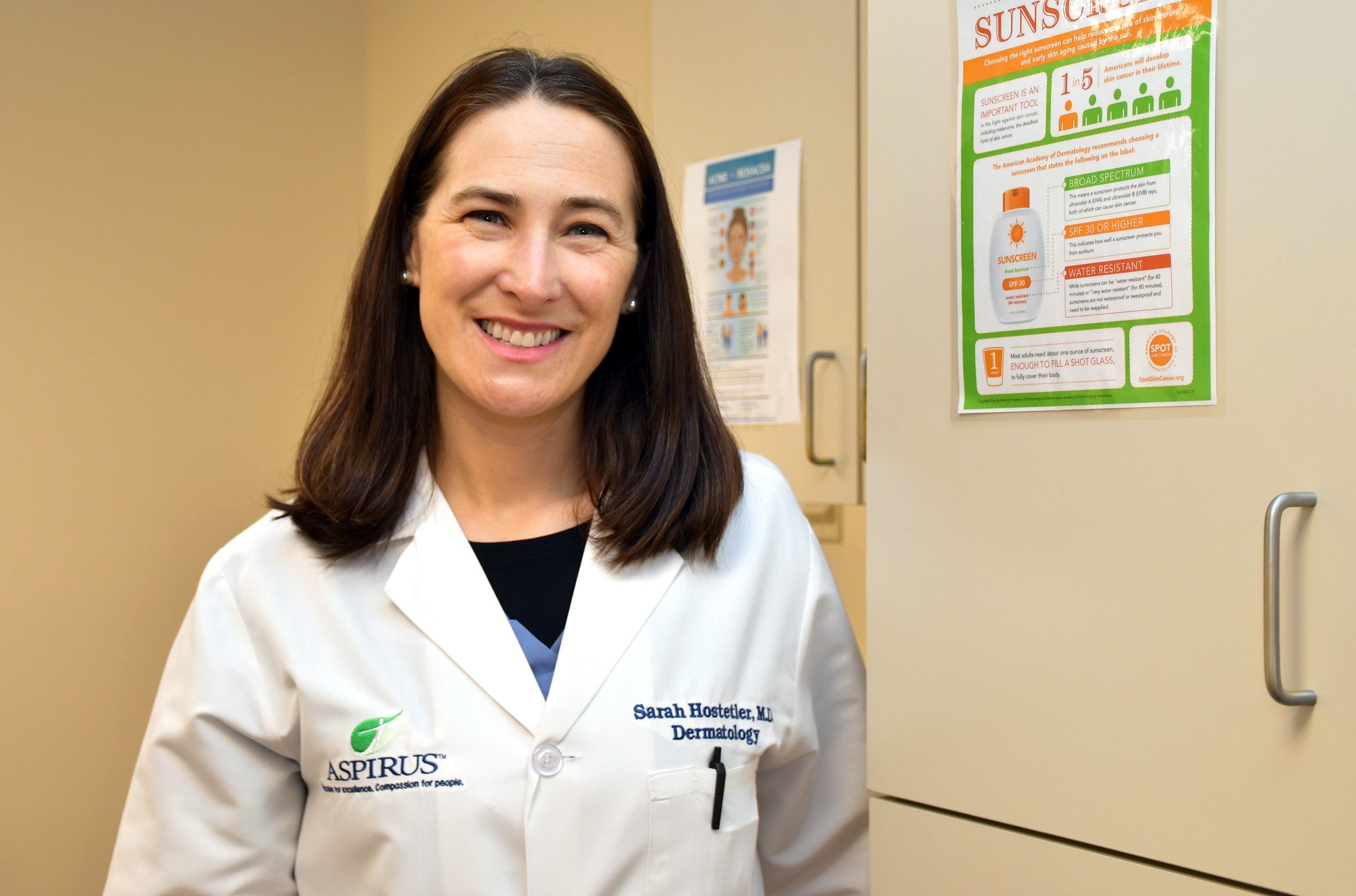It might be time to see a dermatologist
June is National Acne Awareness Month

From special
cleansers and moisturizers to over-the-counter medications and creams, trying
to clear up acne can feel like a series of trial and error. The truth is that
for many people, seeking help from a medical professional is the most effective
solution.
“There are a number
of over-the-counter products that promise to clear up acne and depending on the
type of acne you have, it may work – temporarily at least,” says Dr.
Sarah Hostetler, a dermatologist with Aspirus Health. She adds that “having
persistent breakouts can be frustrating, but the good news is that it is
treatable.”
Acne is the most
common skin condition in the United States and affects up to 50 million
Americans annually. Despite its popularity, according to the American
Academy of Dermatology Association (AAD), there is no “one size fits all”
treatment plan. There are several factors for a dermatologist to consider, such
as:
- What type of acne
(i.e., blackheads, pimples, etc.) you have
- Where the acne
appears on your skin
- What treatments
you’ve already tried
- When the breakouts
started
- Your age
- Whether the acne has
left you with dark spots or scars
Dr. Hostetler says
that “with the right treatment and skin care plan, it’s possible that everyone
can achieve clearer skin.”
The AAD suggests
that if you answer “yes” to six or more of the following statements, it may be
time to talk to a dermatologist.
- You feel like you’ve
tried everything to clear your acne, and nothing works.
- Your acne clears,
but you continue to see new breakouts.
- You have pimple-like
bumps in unusual places, such as your armpit, groin, thighs, or on the backs of
your upper arms.
- Your first blemishes
appeared between 8 and 11 years of age – or earlier.
- You have deep,
painful acne like the acne cysts and nodules.
- You’ve had acne for
years and cannot understand why you still have it.
- You’ve felt
depressed, anxious, or less interested in hanging out with friends since you’ve
had acne.
- You want to hide
your face because of your acne.
- You started taking a
medication within the last 6 months and now have breakouts.
- As your acne clears,
you can see scars or dark spots.
- You’ve cleared the
acne on your face, but nothing seems to clear the acne on your back or chest.
Dr. Hostetler sees
patients at Aspirus Dermatology Clinic in Wausau. To find an Aspirus
dermatologist near you, visit www.aspirus.org/find-a-provider.